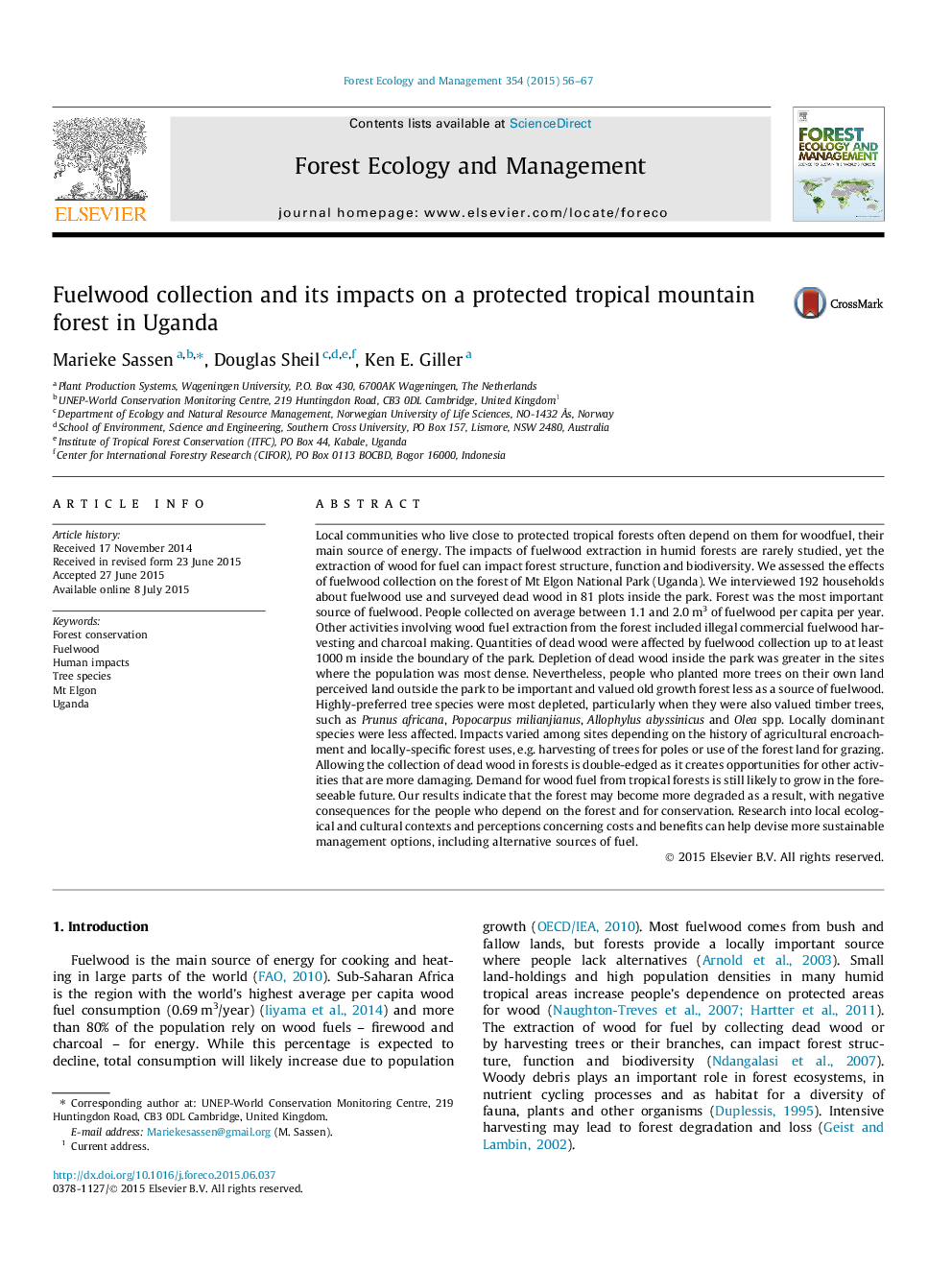| کد مقاله | کد نشریه | سال انتشار | مقاله انگلیسی | نسخه تمام متن |
|---|---|---|---|---|
| 86136 | 159168 | 2015 | 12 صفحه PDF | دانلود رایگان |
• Mt Elgon national park was the main source of fuelwood for local communities.
• Fuelwood collection depleted dead wood and preferred tree species in the park.
• Planted trees used for fuelwood can help reduce pressure on the forest.
• Locally dominant tree species provide opportunities for sustainable harvesting.
• Side-effects from allowing the collection of dead wood need to be controlled.
Local communities who live close to protected tropical forests often depend on them for woodfuel, their main source of energy. The impacts of fuelwood extraction in humid forests are rarely studied, yet the extraction of wood for fuel can impact forest structure, function and biodiversity. We assessed the effects of fuelwood collection on the forest of Mt Elgon National Park (Uganda). We interviewed 192 households about fuelwood use and surveyed dead wood in 81 plots inside the park. Forest was the most important source of fuelwood. People collected on average between 1.1 and 2.0 m3 of fuelwood per capita per year. Other activities involving wood fuel extraction from the forest included illegal commercial fuelwood harvesting and charcoal making. Quantities of dead wood were affected by fuelwood collection up to at least 1000 m inside the boundary of the park. Depletion of dead wood inside the park was greater in the sites where the population was most dense. Nevertheless, people who planted more trees on their own land perceived land outside the park to be important and valued old growth forest less as a source of fuelwood. Highly-preferred tree species were most depleted, particularly when they were also valued timber trees, such as Prunus africana, Popocarpus milianjianus, Allophylus abyssinicus and Olea spp. Locally dominant species were less affected. Impacts varied among sites depending on the history of agricultural encroachment and locally-specific forest uses, e.g. harvesting of trees for poles or use of the forest land for grazing. Allowing the collection of dead wood in forests is double-edged as it creates opportunities for other activities that are more damaging. Demand for wood fuel from tropical forests is still likely to grow in the foreseeable future. Our results indicate that the forest may become more degraded as a result, with negative consequences for the people who depend on the forest and for conservation. Research into local ecological and cultural contexts and perceptions concerning costs and benefits can help devise more sustainable management options, including alternative sources of fuel.
Journal: Forest Ecology and Management - Volume 354, 15 October 2015, Pages 56–67
